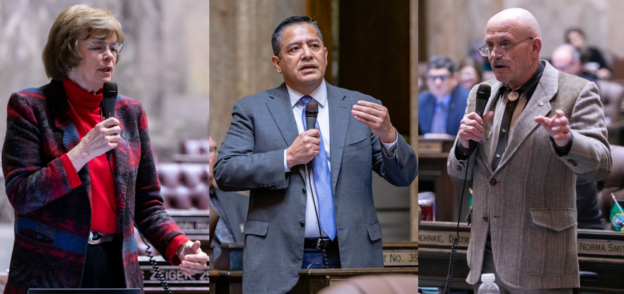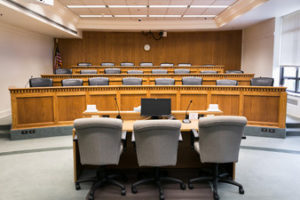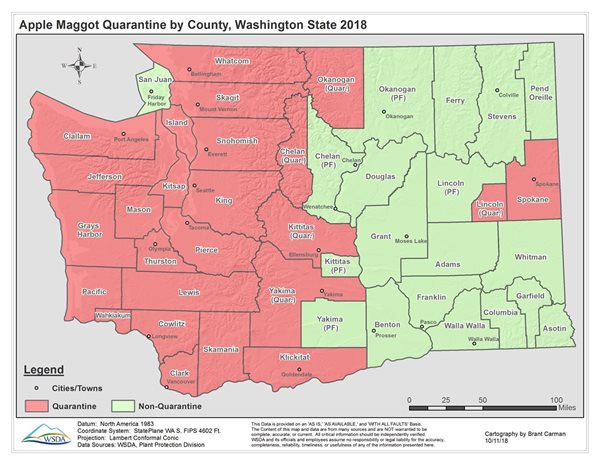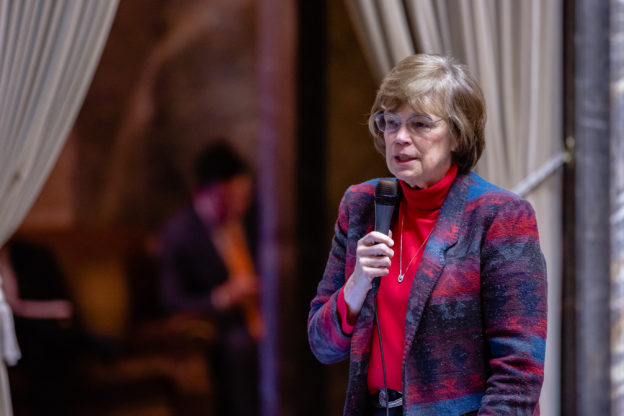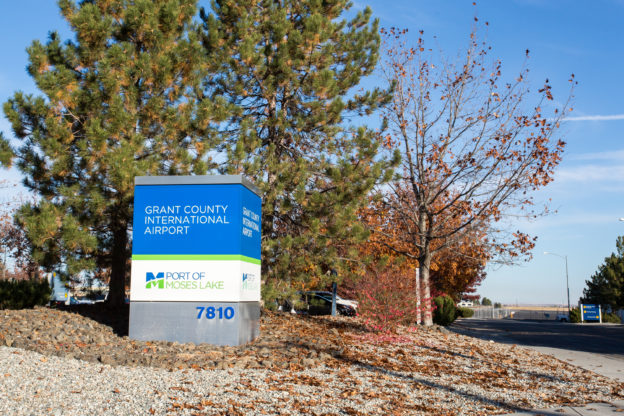Greetings from Olympia,
A great deal has happened in the Legislature since I last wrote to you. As I mentioned in my previous newsletter, the Senate was voting on bills to send to the House. I’m very pleased that a couple of bills that I sponsored were approved and will continue on in the process. As a reminder, the Legislature is scheduled to conclude its 60-day session on March 12.
The state recently had some great news. Namely, thanks to a strong economy, revenue projections are way up. The state is expected to collect $1.5 billion more than anticipated when we adjourned last April. So why aren’t we getting any tax relief? There hasn’t been any acknowledgement of the $30 car-tab issue or response to skyrocketing property taxes.
I’ve sponsored what I consider reasonable legislation to give needed property-tax relief, but the majority does not seem to think that is a priority. In fact, both the House and Senate have unveiled their proposed operating budgets. Unsurprisingly, new taxes and spending are on the horizon. In the Senate budget, the extra revenue is spent, and that doesn’t include the additional $1 billion tax on small business that was fast-tracked earlier this session.
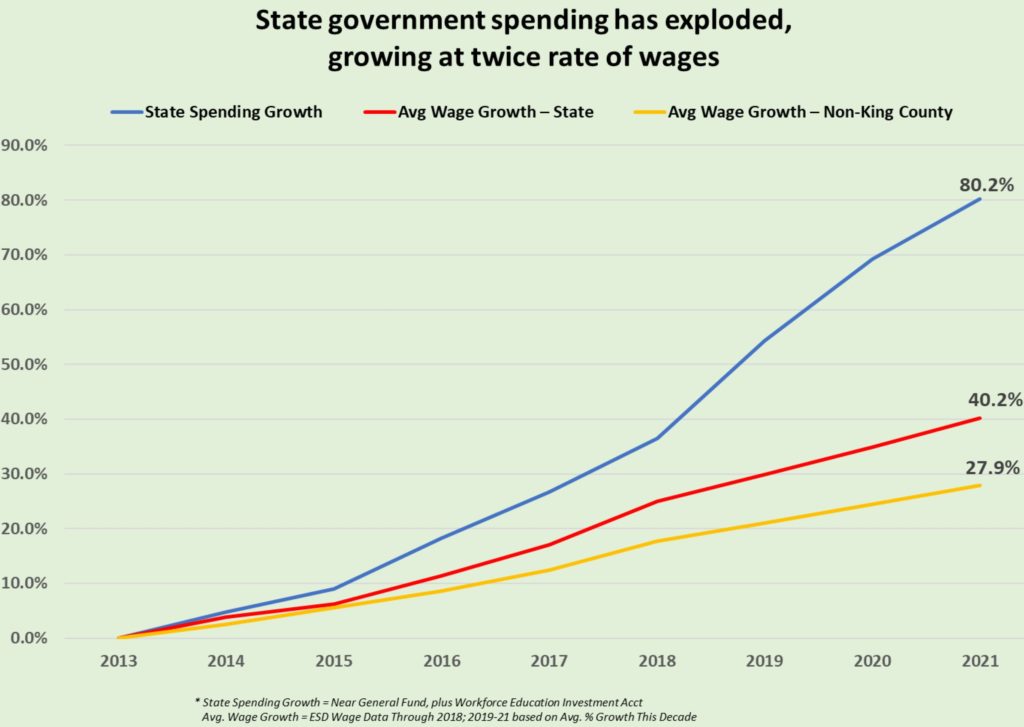
While the budget does make some good investments in needed areas, I feel that with all the extra money we can provide for the neediest citizens while delivering tax relief. The chart above represents the growth in the state’s spending paid for with your tax dollars relative to gains you may have seen in your wages over the same period of time. We hear a lot about corporate greed, but I think we have been seeing too much government greed here in Olympia.
Taking a stand
In addition to some questionable budgeting, we are seeing all kinds of bills that concern me. While I’m in the minority party in the Senate, my colleagues and I were able to take a stand and put down a bad bill that would have prematurely restored voting rights for felons.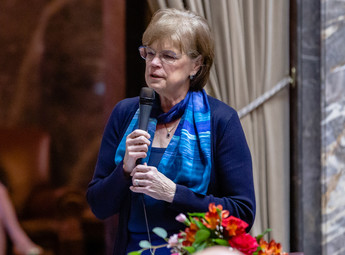
I’m not opposed to people having their voting rights restored after satisfying all of the terms of their sentence, but Senate Bill 6228, would have allowed offenders on parole to vote without completing their sentences or making restitution. A lot of the debate on the floor was characterized by unfortunate condescending arguments that really did not acknowledge victims’ rights.
Thankfully, enough of our Democratic colleagues saw just how bad this idea was and the bill did not make it out of the Senate.
Another contentious bill that we took up concerned creating a new government agency called the Office of Firearm Violence Prevention, Senate Bill 6288. While to some it may sound like a good idea, the language of the bill is concerning. I did not support the bill, but we were able to somewhat improve it, including having the office look at suicide prevention. Amazingly, even though statistics show suicide is the number one gun-related incident, that office wasn’t going to study it. Instead, it was aiming to focus on an agenda and, sadly, giving out grants to organizations that really just opposed the Second Amendment altogether. In the bill, there is a provision that says grants are only considered if they have a plan on how to implement “firearm reduction initiatives.” After this was pointed out, we were told it was just an oversight and a missing word. I’ll be watching this bill as it progresses.
Senate successes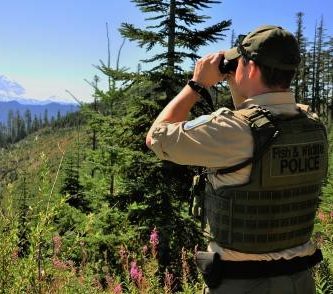
The legislative process is supposed to work like a funnel. Thousands of bills are introduced every year, but only a fraction make it into law. That is a good thing. I’m pleased that a number of bills I’ve sponsored have been approved by the Senate to help our economy, the agriculture industry and law enforcement. I’ll be working hard in the remaining days to make sure they get to the governor’s desk.
Fairness for Fish and Wildlife officers
State Department of Fish and Wildlife officers are a sometimes-overlooked-but-important part of Washington state’s law enforcement community. That is why I sponsored Senate Bill 5481, which would reform how these officers are treated when it comes to collective bargaining and would put them on par with other state-level first responders… Read more.
Aircraft-repair tax incentive soars through Senate
Washington is synonymous with the aerospace industry, and not just the Puget Sound area. Hundreds of family-wage jobs exist elsewhere in the state thanks in part to tax policy supported by legislation I sponsored. Senate Bill 6068, which was approved on the next-to-last day of the Senate’s first round of voting, would retain proven tax incentives for large airplanes undergoing modification work in Washington… Read more.
13th District 2020 Team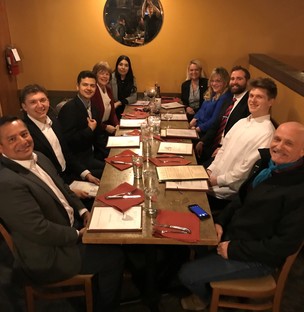
Our district is fortunate to have a strong team working for you in Olympia. I want to say thank you to the wonderful staff for their dedication to our constituents and support of our work as legislators. I’m also fortunate to have thoughtful and hard working seatmates, Reps. Tom Dent and Alex Ybarra.
Together, we are making sure all the communities in the 13th District are heard in your state Capitol. We each bring a unique area of expertise and passion to serving you. Here is a recent photo of your 13th District team taking time to share dinner after work.
Working with me in Olympia
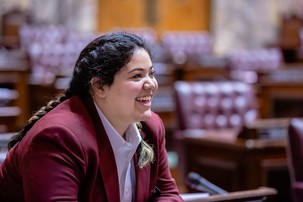 Madelayna Grajeda, a sophomore at Wilson Creek High School, spent a week paging for me in the Washington State Senate. I was honored to sponsor this bright young woman. She made an excellent page. Madelayna was always so willing to help and learned a lot about the legislative process through hands on experience.
Madelayna Grajeda, a sophomore at Wilson Creek High School, spent a week paging for me in the Washington State Senate. I was honored to sponsor this bright young woman. She made an excellent page. Madelayna was always so willing to help and learned a lot about the legislative process through hands on experience.
It’s bit late to sign up for the 2020 session, but I encourage young people in our district to consider paging. It’s a wonderful program where students spend a week working at the Capitol. They get a chance to attend page school to learn about parliamentary procedure and the legislative process. Pages actually do some important work transporting documents between offices, as well as delivering messages and mail. Students also draft their own bills and engage in a mock session!
Click here for more information.
Please don’t hesitate to reach out to my office with any concerns or ideas you may have about your state government.
Sincerely,

Judy Warnick,
Your 13th District State Senator









